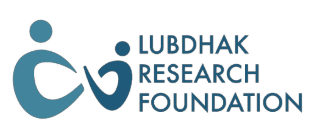Great Philosopher, Aristotle famously remarked: “Man is by nature a social animal; an individual who is unsocial naturally and not accidentally is either beneath our notice or more than human. Society is something that precedes the individual. Anyone who either cannot lead the common life or is so self-sufficient as not to need to, and therefore does not partake of society, is either a beast or a god.”
Believing strongly in this philosophy, Lubdhak Research Foundation (LRF) has devised a new intervention- “Social and Life Skills Training programme”.
The philosophy behind the programme being, it is not just enough to impart language as we have been dedicatedly and effectively doing. To make life independent it is important to be able to know how to perform activities for oneself and be comfortable in the social realm.
Hence, this programme entails much more. From helping individuals acquire skills to be able to interact, communicate with others programme’s ambit is wide.
It will not only make individuals comfortable in the known social environment, such as with family and friends, but also help them gel in unknown environments, such as larger social gatherings—in schools, at the market place and others. The programme has been so designed, which will ensure that individuals navigate through spaces on own, such as walking to the barber, grooming one-self, developing cognitive skills and other essential skills necessary to live an independent life.
How will it work?
The programme will begin with an assessment to understand the current social functioning level of the individual. Once the assessment is complete, the next step is to discern between skill acquisition deficits and performance deficits. Based on this information, the selection of intervention strategies takes place.
Level I programme, the basic one entails learning from the peers such as requesting items from peers, reciprocating greetings with peers, giving and receiving items from peers and others.
Level II programme is then about interacting with the peers, such as requesting assistance from peers, attention from peers, eye contact with peers and others.
Level III programme, understandably an advanced where one learns the ability to be able to freely communicate, actively participate in conversations, understanding movies and acquire all the essential skills, which categorises one as an effective communicator.
TIMINGS: every Saturdays 9am to 11am
